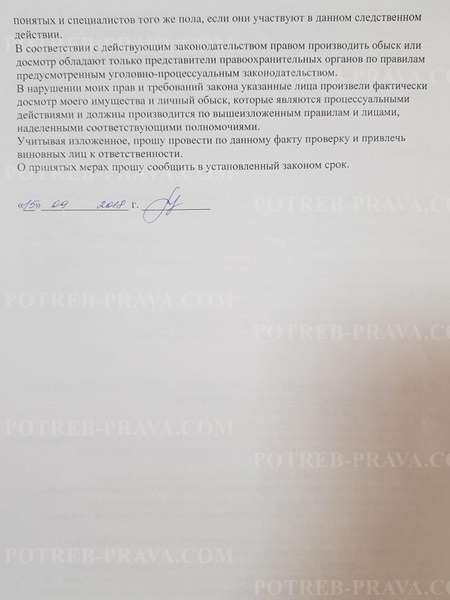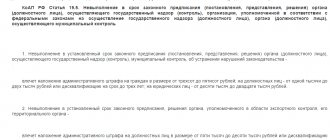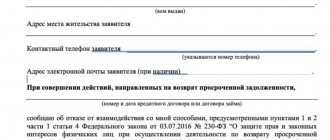The rights of a security guard at a checkpoint, the powers that a security officer may have at a checkpoint of an enterprise or other facility, are enshrined in their internal instructions, in the rules of the enterprise itself, and may stem from the terms of employment contracts with employees of the organization.
The range of these powers is quite wide and depends primarily on the type of enterprise and the specific security requirements of the organization.
Thus, entry with recording devices is prohibited on the territory of enterprises that work with state secrets. Therefore, when entering this facility, the requirement to leave your phone or camera outside the facility is completely legal. However, at a checkpoint, for example, a dormitory, this requirement will be unlawful.
Requirements can also be put forward based on safety conditions at work or at a construction site. At such enterprises, the visitor will be asked, for example, to wear a safety helmet.
Thus, a security guard at the entrance of a particular facility may have various rights arising from laws, instructions, orders, and the terms of bilateral agreements.
ATTENTION : our lawyer for the protection of buyer rights will explain to you the rights of store security guards, as well as methods of combating violations of the rights and legitimate interests of buyers and visitors: professionally, on favorable terms and on time. Call today!
Who has the right to inspect personal belongings?
A search is often confused with an inspection. These concepts should be clearly distinguished, since this is important for determining the powers of a particular person.
An inspection is a visual examination of the contents of pockets, bags, vehicles, etc. The inspection excludes physical impact on the subject of inspection. In other words, during inspection it is prohibited to touch the property, search and examine the contents of the trunk or package.
Security guards can only conduct inspections, which must be carried out with the consent of the person being inspected.
An inspection is a completely different action and is an investigative action.
All investigative actions according to the laws of the Russian Federation can only be carried out by authorized authorities, that is, police officers, departmental bodies, customs service employees, and penal institutions.
The search is carried out according to strictly regulated rules with the mandatory participation of at least two witnesses and is accompanied by the preparation of a protocol of the investigative action.
Thus, only law enforcement officers have the right to conduct searches, as well as inspect personal belongings, subject to mandatory compliance with the procedure established by law.
Can security guards search personal belongings?
The security guards we meet in office buildings, stores and shopping centers are most often employees of private security companies (PSCs). They are subject to the Law “On Private Detective and Security Activities in the Russian Federation.”
According to Art. 12 of this law, a security guard can detain a person who has committed an attack on protected property or violated the access control regime at the scene of the offense. In this case, he must immediately hand over the offender to the police.
Security guards at private enterprises do not have the authority to search the personal belongings of citizens, even if they are suspected of theft. The most they can do is inspect the contents of the visitor's bag.
Where can I complain about store security guards? More details
Does the security guard have the right to detain until the police arrive?
The law provides for the possibility of detaining an individual before the arrival of police officers.
However, it should be borne in mind that the guard must have grounds that the person has committed an offense. Evidence of the committed act can include photography, video recording, indications of witnesses or eyewitnesses, and observations of the security guard himself.
If an offense is detected, the security guard must introduce himself, present the relevant document, offer to stay until employees of the competent authority arrive, presenting to the detainee the grounds for such detention.
Can a security guard ask for a passport?
The security officer has the right to do this, but only with the consent of the detained buyer. If he does not want to show his passport, this action is carried out on a general basis.
You can contact the management of the shopping center and find out whether there is a clause in the job descriptions of the security officers that allows access to customers only with a passport.
If there is such a point, you should make sure that the security officer with whom you had to interact has the authority to process the personal information of visitors - a list of such employees should be compiled in a separate document.
If the documents are available, you need to keep in mind that the client has the right to refuse to show his own passport to the security guard, but in this case he has the right not to let him in.
Watch the video. What a store security guard has the right to:
Does a security guard have the right to use physical force?
The use of physical force against a person suspected of committing an offense in the presence of serious grounds is provided for by law.
Physical force may be used to detain a person until the police arrive if they resist arrest.
However, it is worth noting that the use of force must be justified and carried out only in exceptional cases to prevent the commission of a crime, as well as for the purposes of self-defense.
In addition, the degree of force used must be proportionate to the situation. Cases of abuse of power by security guards are not uncommon. And such actions are criminally punishable.
What is prohibited for a security guard?
Security guards work in accordance with laws, regulations and rules.
According to these standards, security guards are prohibited from:
- carry out actions within the competence of government bodies, including inspection, questioning, investigation and others
- require people to perform certain actions
- perform actions that may infringe on the rights and legitimate interests of citizens
- endanger the life and health of citizens
- use physical force, except in cases of detention before the arrival of the police, self-defense or in order to prevent the commission of a crime
- use special means in relation to minors, pregnant women, people with disabilities, and also unless absolutely necessary
- use firearms, except in cases expressly provided for by law
- commit any actions that violate the personal non-property and property rights of citizens.
What rights do security guards have?
The powers of private security guards are limited to the duties of protecting facilities and property, ensuring intra-facility and access control, and protecting the life and health of citizens.
According to Art. 12.1 of the Law “On Private Detective and Security Activities in the Russian Federation”, in accordance with the contract for the provision of security services, employees of private security companies, when ensuring intra-facility and access control, have the right:
- require staff and visitors to comply with internal and access control regulations;
- allow persons to enter facilities with access control upon presentation of documents giving them the right to enter or exit, enter or exit vehicles, bring in (import) or take out (export) property;
- inspect entering or leaving vehicles at access-controlled facilities;
- use physical force, special means and firearms in special cases established by the legislation of the Russian Federation;
- provide assistance to law enforcement agencies.
What regulates the rights and responsibilities of a store security guard?
There is one document that fully describes security activities, including the range of powers of the security guard.
This is the Law of the Russian Federation No. 2487-1 “On private detective and security activities in the Russian Federation”, which came into force on March 11, 1992. Section 3 of the law is entirely devoted to private security activities. Section 5 discusses the possibility of using physical force, including weapons, by a security guard in different situations.
Can a store security guard require you to put things in a storage room?
Store security guards do not have the right to require visitors to leave personal belongings in a storage room or to pack them in a bag. They also cannot block the entrance to the store if a person refuses to comply with such requirements.
In the event of a violation, the security guard should be reminded that forcing customers to enter into an agreement to store personal items in a store storage room is illegal. If he continues to block access to the store with personal belongings, you should ask him to invite the administrator of the institution and find out on what basis the employee is acting. If you are told that the security guard acts in accordance with the store’s internal instructions, this is not an argument, since local regulations cannot contradict the law.
For the same reasons, a security guard cannot require store visitors to take a basket and prohibit them from putting goods in their bag or bag before paying for them.
How to punish a store security guard?
If a security guard fails to comply with his duties, as well as if he commits actions that violate the rights and interests of citizens, he can be held accountable.
Responsibility can be of several types:
- disciplinary
- civil
- administrative
- criminal
To bring a security guard to disciplinary liability, you must contact his immediate supervisor or employer, orally or in writing, outlining all the circumstances of the incident. The manager will consider the appeal and, based on the results, will decide whether to hold him accountable or not, for example, to a reprimand or disciplinary action in the form of deprivation of a bonus, part of his salary, etc.
- Civil liability is the recovery from the security guard of damage caused (material and moral). You can recover damages through the court by filing a claim with the appropriate authority. In this case, knowledge of civil proceedings will be useful, as well as evidence of damage in a specific amount (read more about compensation for harm caused to a citizen’s health at the link).
- Administrative punishment involves issuing a decision on an administrative violation and imposing an administrative fine on the security guard. This type of liability is provided for in the Code of Administrative Offenses and is applied by employees of executive authorities. Applications to bring a security guard to justice can be submitted to the prosecutor's office or the police (more information on how to draw up an application to bring to administrative responsibility can be found at the link on our website).
- Criminal liability occurs only by court verdict. In order for a security guard to be sentenced to punishment, it is necessary to contact the police with a statement about the commission of a crime. After carrying out a set of investigative actions, if there is sufficient evidence, the case will be sent to court. The result of the trial will be a conviction or acquittal (instructions for drawing up an application to initiate a criminal case at the link).
How to properly file a complaint
complaints against a security guard to the prosecutor's office for free in word format
To correctly file a claim, you must adhere to the following rules for creating it:
- determine the correct addressee of the complaint (you can look up its coordinates on the Internet),
- indicate your full name and address to which the documentary response should be sent,
- indicate the exact date, that is, the day, month and year when the unpleasant event occurred,
- tell the name and details of the company or the position of the offending employee,
- state in as much detail, accurately and consistently as possible the circumstances that happened recently. Tell why the complaint is being sent, what illegal actions were taken by the guards, or talk about the fact of their inaction,
- after a detailed description of the conflict, depending on who the addressee of the complaint is, you need to indicate the requirements for the offending employees: should they ask for forgiveness, correct the mistakes made, take disciplinary action or other actions,
- At the conclusion of the claim, it is imperative to put a date and signature.
ATTENTION! Look at the completed sample complaint against a security guard to the prosecutor's office:

Watch the video. Do I need to leave bags in the store?










